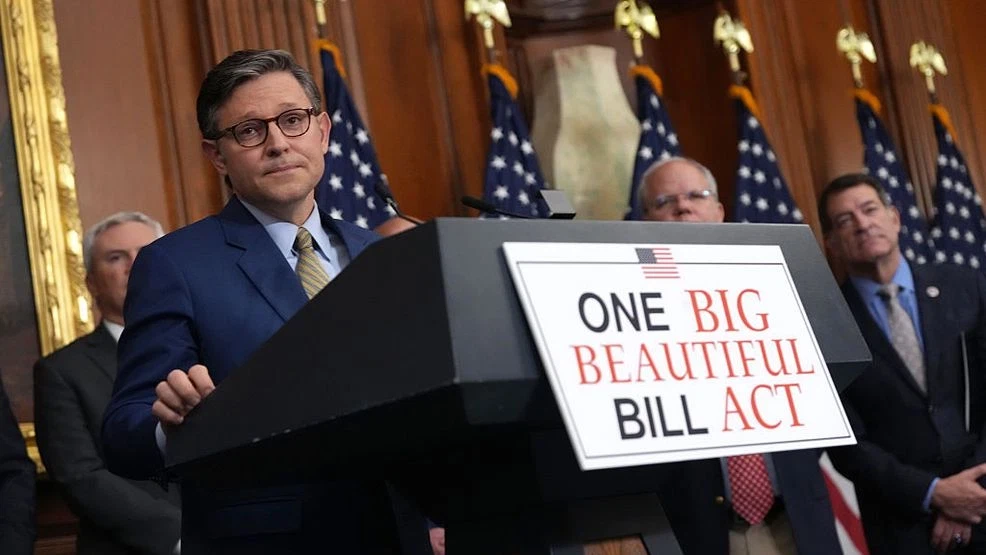July Fourth could prove to be as decisive today as it was back in 1776. While nowhere close to a Declaration of Independence, the One Big Beautiful Bill Act, a tax and spending bill, is one step closer to becoming law, affecting college students and universities alike.
After passing the House of Representatives in May, the bill passed the Senate on June first, following an overnight marathon ending in a 50-50 tie broken by Vice President JD Vance. At Oakland University, the main points of concern have been Medicaid and Pell Grants.
“My biggest concern is Medicaid,” Senior Vice President for Finance & Administration, Stephen Mackey, said at the June 27 Board of Trustees meeting. “That is my single biggest concern, because the medical school, their all funds budget is heavily reliant on Medicaid dollars.”
Accompanied by a reduction in Pell Grant eligibility, elimination of Grad PLUS loans and an emphasis on risk-sharing, the megabill permeates higher education budgets in uncertainty — all concerns raised at the BOT.
“The current proposal at the federal level is for the federal government to cut their support from a 90% match to an 80% match,” Mackey said. “That’s a 10% drop, which means either the states have to cut Medicaid by 10% or they have to find the 10% within their budgets.”
With an approved budget and a plan to revise it if the megabill places more restrictions on higher education funding, the university would likely not see adverse effects on its finances until the next fiscal year, Mackey explained.
Students still have to face the remaining challenges of a slash in financial aid.
“We have students working at jobs, some of them have families, you know and there’s a cost factor that comes into play here,” Johnson said. “When you factor that in with the elimination of subsidized federal loans and Grad PLUS loans, all it does is just create more financial barriers that keep students from being able to pursue an education.”
As a university with a historic commitment to diversity, equity and inclusion, OU and its students might also expect challenges from the Michigan House Bill 4580, Johnson explained.
“Not only have they made massive cuts in campus investment funds to UofM Ann Arbor and MSU, but they’ve also instituted a policy saying that any spending we do on DEI gets cut from our budget,” Johnson said. “It prohibits trans women from participating in sports.”
Between a rise in local and national protests and the option to call state representatives to participate in civic discourse, the student body president reminded the campus community that midterm elections are also an option to make their voices heard.
“Midterm elections are coming up a lot quicker than they’d like us to know, and this is going to be one of those times where they have to justify the decisions that they’ve made,” Johnson said. “We, as the voters, are the ones who have to make them justify.”
In Washington, the House has yet to review the Senate’s version of the bill. Their main differences fall on the rising debt ceiling, cuts to food stamps and increased requirements to access Medicaid.
“The chambers are going to have to find a way to work out those differences,” Director of the Center for Civic Engagement and Distinguished Professor of Political Science, David Dulio, said. “I doubt the House simply adopts the Senate version, so there will be some additional work to do.”
In redirecting government funds to Trump’s policy priorities, Dulio described higher ed as an easy target. “There is a lack of confidence among the public in higher ed institutions and serious doubts about the value of getting a college education,” Dulio said.










Janell Townsend • Jul 7, 2025 at 11:54 PM
Who is “Johnson”?